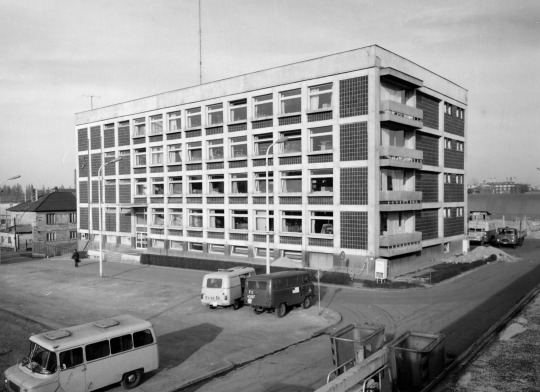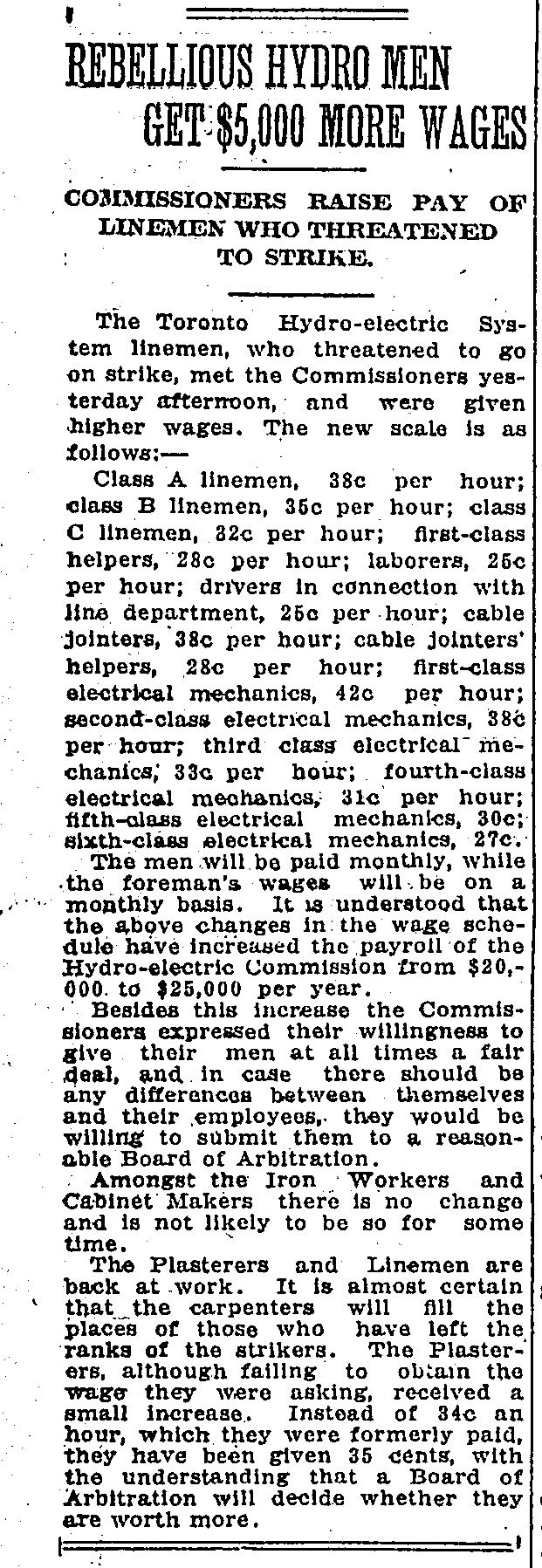#public utilities
Text

3K notes
·
View notes
Note
now I wanna know- why isn't drinking water free in the US?
Hi there friend! Thanks very much for taking the bait from this post. Buckle up, this is a long one.
If you want to put out a cistern and collect rainwater and use that, congratulations! Your water is free! Plus the cost of maintaining your cistern and keeping it clean. If you’re lucky enough to live somewhere with a high enough water table to have a well, then your water is also free + the cost of the well and well maintenance.
But if you want water to come out of your tap on demand and you can’t or don’t want to maintain a cistern and you can’t or don’t want to have a well… you need public water!
How do we get public water? Well, a government entity (usually. there are some private utilities, but that’s a different post. I have strong feelings) has rights to take water out of a river or a lake, or they have a reservoir, or they have access to an aquifer. Then they have to transport the water out of the source. This generally requires aqueducts or massive pipes, which are expensive and need to be maintained, which is also expensive. The pipe leading out of one of my utility’s reservoirs is 12 feet in diameter.
Does the water go directly from the source to your home? Nope! It gets piped to a water filtration plant! The process of modern water filtration is complicated but it involves both physical and chemical treatment to make sure the water isn’t carrying any parasites, harmful bacteria, or pollutants and it has the right pH. Not only are these filtration plants extremely expensive to build and maintain but the process of operating them is extremely expensive, both in terms of hiring skilled staff and having appropriate materials for the filters and chemical treatment.
After the treated water (called “finished water” in the biz) is ready it does get piped to your house.
If you use public water, do you know where your local water filtration plant is? No? That probably means it’s not in your immediate neighborhood, which probably means it’s several miles or more away. To get to your house, the water needs to travel through an extensive pipe network. These pipes are smaller but they have to remain pressurized so that no contaminants can get into the water on its way to your house. But pipes break! Especially if you live somewhere with a freeze/thaw cycle. Maintaining this pipe network is, you guessed it, expensive! It requires materials and extremely skilled workers who perform in very very difficult conditions. Plus lots of engineering to keep the whole system pressurized even when one part of it breaks. Oh, and you know what lots of pipes were made out of in the early 20th century? Lead! So all around the country utilities need to make extensive and costly infrastructure upgrades because now we know lead pipes are really freaking bad.
Okay, so you get the basic picture. And I haven’t even gotten into Safe Drinking Water Act compliance, but most of that happens at the filtration plant. Oo! Or desalinization because some utilities pull their water from the sea and need to take the salt out. I know basically nothing about this except that it is likely complicated and expensive to do at scale.
This is essentially why I get frustrated by people who argue “why should we pay for something that falls out of the sky?” Because finished water doesn’t fall from the sky and it sure as hell doesn’t fall from the sky into your faucet. (Side note: as a public utility official I have been screamed at by the “it falls from the sky” people. A thing I like about the private sector is that people scream at me a lot less.)
Now, there is a very strong argument to be made that because water is necessary for human life, it should be provided by the government for free to everyone. And just like the costs of roads or public education, this should be part of the public budget and paid for by taxes and no one should have a water bill. I don’t disagree with this. I’m sure that’s how it’s done in some countries.
I don’t have a well-researched answer on the history of water utilities but I do have some facts and some (very) educated conjectures. Water rights in the US are complicated (another separate post!) but they’re based on private ownership. Ever since white people came to this country people have been claiming ownership over water and charging each other money for taking water out of rivers or lakes or the ground. You can measure how much of it someone uses and charge them for it. Water is treated like a commodity because unlike other public goods, it *can* be treated like a commodity and then, you know, capitalism. Again, I’m not saying that’s right.
But as a society, if we believe that no one should have a water bill, then we need to figure out how to pay for all the very expensive steps in the process I outlined at the top. Could that just be taxes? Sure, if you have a system that supports taxes at that level. Do I believe that public funding of water infrastructure would be a fuckton better than a lot of things we use taxes for now? Absolutely! But that requires massive institutional change and this isn’t generally an issue that people know enough about to demand change.
If you read this far, congratulations! You now know more stuff about drinking water!
#hey if you enjoyed reading this consider reblogging it#it took me a while to write up#and I love educating people about this stuff#also if you have follow up questions please send them along#miro does asks#miro irl#drinking water#public utilities#water utilities#public water#long post
109 notes
·
View notes
Text
Non-paywall version here.
"Shortly after a federal appeals court ruling threatened to hamstring Berkeley’s ban on new natural gas hookups, New York state has passed a budget barring gas appliances in new buildings.
New York, which was America’s sixth-largest state consumer of natural gas in 2020, became the first state to enact such a ban when the state’s 2023-24 budget was passed [on May 2, 2023].
“Changing the ways we make and use energy to decrease our reliance on fossil fuels will help ensure a healthier environment for us and our children,” New York House Speaker Carl Heastie, a Democrat, said in a news release.
Los Angeles is among more than 70 California cities and counties that have banned or discouraged natural gas hookups in new buildings. The City Council voted in May to do so, citing climate change. However, no state had passed such a ban until now.
The requirements for electric construction will be phased in starting in 2025, and include some exemptions: “Hospitals, critical infrastructure and commercial food establishments” will be left out, according to Heastie’s statement, as will “buildings where the local grid is not capable of handling the load.” ...
The ban is part of an overall strategy “to reduce our state’s carbon emissions and move us away from fossil fuels to renewable energy sources,” Assemblymember and Energy Committee Chair Didi Barrett said...
Gov. Kathy Hochul... released a statement touting the budget and its “$5.5 billion investment to promote energy affordability, reduce emissions, and invest in clean air and water, building on more than $30 billion committed to climate action. ”
The budget, according to Hochul’s website, includes “nation-leading building decarbonization proposals that will prohibit fossil fuel equipment and building systems in new construction, phase out the sale and installation of fossil fuel space and water heating equipment in existing buildings, and establish building benchmarking and energy grades.”"
-via Los Angeles Times, 5/3/23
#new york#kathy hochul#natural gas#methane#carbon emissions#air pollution#climate change#fossil fuels#renewable energy#gas stove#public utilities#good news#hope
84 notes
·
View notes
Text

FŐTÁV office building, Kalotaszeg street, Budapest, 1973. From the Budapest Municipal Photography Company archive.
43 notes
·
View notes
Text
After General Motors closed its Flint, Michigan, factories in 1997, it posted signs on the empty buildings: “Demolition Means Progress.” Even if Twitter limps along after its recent self-immolation, we can expect to see more and more signs of something like urban decay on the platform. As a scientist who has studied online safety and discrimination for more than a decade, I’m deeply worried about the safety risks of half-failing infrastructure.
Yet Twitter’s failure could also lead to something better. As we watch the platform crumble, we are experiencing what science and technology scholars call an “inversion”: failures that jolt us to recognize that infrastructure depends on people and institutions, not just technology.
By recognizing infrastructure for what it is, we plant the seeds of hope. If we simply shop for a replacement app to Twitter, we reduce the social fabric into a product to be traded and sold by data brokers. Instead we could understand our social networks more clearly, as a public good like clean water, safe roads, or literacy, which confer broad benefits and grow in value as more people participate. Whether or not social media is run by a corporation, recognizing public goods means recognizing shared responsibility.
When residents of Flint learned eight years ago that their water was poisoned, they were also forced to learn the details of a complex system most people shouldn’t have to understand. That recognition comes with an urgent opportunity to imagine things differently. Corporate abandonment helped create the water crisis in Flint, but the crisis was also a failure of democracy. If we’re not careful, the same could happen to our social ecosystems.
- How to Avoid Social Media Blight | by J. Nathan Matias
102 notes
·
View notes
Text
7 notes
·
View notes
Note
On the one hand, I agree with you that Google/Facebook/Twitter/et al should be removed from corporations. On the other hand, as someone who is not American, the idea of them being nationalised by the US government specifically and it being the only entity in control of these places is horrifying.
Yeah, I absolutely agree with you on this but at the sametime the corporations, and the Billionaires at their hearts, which are in control of them NOW are even MORE horrifying. In an ideal world, sites that have become institutions like these have, which can and have in the past exercised significant impact on State-politics, would be overseen and managed by some rotating multinational collective of sober-minded and ethically-rigorous professionals the way the old Internet URL authority was managed. Unfortunately we live in the capitalist hellscape wherein that impartial, multinational professional oversight board was effectively bought-out to let corporations do whatever the hell they want.
There really are no good, practical, immediate choices here in our current situation. When your political institutions allow certain private individuals to wield the sort of power ours do, the only immediate non-criminal check to that power is The State itself. In the long-term of course there are better answers to this -like organizing to create and maintain our own non-profit, decentralized, volunteer/community-operated alternatives ala Ao3- but so long as that's not happening I'd rather have then run as unbiased public-utilities, similar to how, like, the US post office or NPR work(Of course: both of those are ALSO gr8 examples, over the last 30 years, of how good public services can be undermined by determined capitalist wreckers. Politics is a constant struggle <:T).
#Anons#ask repies#Politics#The Internet#Institutional Sites#Public Utilities#Capitalism#zA's Inveterate Politicism#Aristos#The Public#The State#Republican Fuckery
8 notes
·
View notes
Text
best paying jobs in public utilities
The Utility Worker is tasked with maintaining the cleanliness, orderliness, proper maintenance, safety, and security of buildings, grounds, equipment, and inventory. They offer support to skilled maintenance, landscaping, and custodial teams by following instructions and carrying out various semi-skilled or unskilled responsibilities related to the maintenance and repair of facilities.
What are the rights and responsibilities of public utilities?
(i) Public utility undertakings have the obligation to offer services to all individuals without any form of discrimination based on caste or creed.
(ii) These services must be provided promptly and as needed. It is important to establish rules and regulations to ensure the uniform and regulated use of public utilities.
Electrical Engineer:
An electrical engineer specializes in the design, development, and maintenance of electrical systems. They work on projects involving power generation, distribution, and transmission, and are responsible for ensuring the safe and efficient operation of electrical infrastructure.
Requirement:
Generally, obtaining a bachelor's degree in electrical engineering or a closely related field is typically a prerequisite.
Demonstrating a solid understanding of electrical principles, systems, and codes is essential.
Proficiency in utilizing computer-aided design (CAD) software and other engineering tools is necessary.
Having analytical and problem-solving skills is vital for designing and resolving issues in electrical systems.
Effective communication and strong teamwork abilities are crucial for collaborating with colleagues and clients.
Lineworker:
A lineworker, also known as a line technician or lineman, is responsible for installing, maintaining, and repairing power lines and electrical distribution systems. They often work at great heights and in various weather conditions to ensure the uninterrupted flow of electricity.
Requirement:
High school diploma or equivalent is typically required, though some formal training programs may be available.
Physical fitness and strength to work at heights and in challenging weather conditions.
Knowledge of electrical systems, safety protocols, and tools used for installation and maintenance.
Ability to interpret blueprints, diagrams, and technical instructions.
Excellent balance, coordination, and manual dexterity.
Electrician:
Electricians are highly trained and proficient experts responsible for the precise installation, upkeep, and restoration of electrical systems within various structures, including buildings, residences, and other architectural establishments. They work with wiring, circuits, fixtures, and equipment to ensure electrical safety and proper functioning.
Requirement:
Successful completion of an apprenticeship program or vocational training specific to electrical work is typically required.
A comprehensive understanding of electrical codes, regulations, and safety practices is necessary.
Proficiency in accurately interpreting and comprehending electrical blueprints and schematics is essential.
Hands-on experience in electrical installations, repairs, and proficient troubleshooting is highly valued.
Excellent hand-eye coordination and meticulous attention to detail are crucial attributes for this role.
Power Plant Engineer:
A power plant engineer is involved in the design, operation, and maintenance of power generation facilities. They work with various types of power plants, such as thermal, hydroelectric, nuclear, or renewable energy plants, to ensure efficient power production and adherence to safety regulations.
Requirement:
Bachelor's degree in electrical engineering, mechanical engineering, or a related field.
Understanding of power plant operations, thermodynamics, and energy conversion processes.
Knowledge of environmental regulations and safety standards.
Demonstrating advanced proficiency in utilizing computer-aided design (CAD) software and other cutting-edge engineering applications is crucial for this role.
Strong problem-solving and decision-making abilities.
Wind Turbine Technician:
Wind turbine technicians are responsible for the installation, maintenance, and repair of wind turbines used for generating renewable energy. They perform inspections, troubleshoot issues, and ensure the efficient operation of wind power systems.
Requirement:
Completion of a wind turbine technician training program or related education.
Understanding of wind turbine systems, components, and maintenance procedures.
Ability to climb heights and work in confined spaces.
Knowledge of electrical and mechanical systems.
Strong troubleshooting and problem-solving skills.
Operator:
Operators are professionals who oversee and control the operation of public utility systems or facilities. They monitor equipment, maintain operational parameters, and ensure the smooth functioning of utilities such as water treatment plants, power plants, or wastewater treatment facilities.
Requirement:
High school diploma or equivalent, though additional technical training may be required.
Knowledge of specific utility systems, equipment, and processes.
Ability to monitor and control systems, detect abnormalities, and respond to emergencies.
Basic computer skills for operating control systems and data entry.
Understanding of safety protocols and regulations.
Water Treatment Specialist:
Water treatment specialists work in water treatment plants to ensure the purification and treatment of water for safe consumption. They operate and maintain various equipment and processes to remove impurities and contaminants from water sources.
Requirement:
Education requirements can vary, ranging from a high school diploma to a bachelor's degree in environmental science, chemistry, or a related field.
Knowledge of water treatment processes, equipment, and chemicals.
Familiarity with water quality standards and regulations.
Ability to operate and maintain water treatment systems and equipment.
Strong problem-solving and analytical skills.
Energy Auditor:
An energy auditor assesses energy consumption patterns in buildings, industries, or public facilities. They identify areas of energy inefficiency, propose energy-saving measures, and recommend improvements to reduce energy consumption and environmental impact.
Requirement:
Obtaining a bachelor's degree in engineering, environmental science, or a closely related field is typically a fundamental requirement for this position.
Knowledge of energy systems, efficiency principles, and renewable energy technologies.
Familiarity with energy auditing methods, tools, and software.
Strong data analysis and interpretation skills.
Effective communication skills for presenting findings and recommendations.
These public utility jobs play crucial roles in maintaining and delivering essential services such as electricity, water, and energy to communities while ensuring safety, efficiency, and environmental sustainability.
Conclusion:
The field of public utilities offers a diverse range of career opportunities with different skill sets and requirements. These jobs play vital roles in ensuring the efficient and safe delivery of essential services to communities. While compensation can vary depending on factors such as experience, location, and industry demand, it is worth noting that some public utility jobs are known for being among the best-paying in the industry.
Professions such as electrical engineers, power plant engineers, and wind turbine technicians are often recognized as highly lucrative careers within the public utilities sector. These roles require specialized expertise, technical knowledge, and the ability to navigate complex systems and technologies. Additionally, management positions within public utility companies can also offer competitive salaries and benefits.
It is important for individuals interested in pursuing the best paying jobs in public utilities to consider the specific educational requirements, experience, and skill sets necessary for each role. Keeping up with advancements in technology, regulations, and industry trends can also contribute to professional growth and increased earning potential.
Overall, the
offer not only financial rewards but also the satisfaction of contributing to the reliable and sustainable delivery of essential services to communities.
2 notes
·
View notes
Text
Corporations Are Buying Up Tap Water. You’re Paying the Price.
youtube
#water#public utilities#utilities#government#corporations#neoliberalism#wall street#capitalism#economics#Youtube
0 notes
Text

"REBELLIOUS HYDRO MEN," Toronto Globe. May 30, 1913. Page 8.
----
GET $5,000 MORE WAGES
----
COMMISSIONERS RAISE PAY OF LINEMEN WHO THREATENED TO STRIKE
---
The Toronto Hydro-electric System linemen, who threatened to go on strike, met the Commissioners yesterday afternoon, and were given higher wages. The new scale is as follows:-
Class A linemen, 38c per hour; class B linemen, 35c per hour; class C linemen, 32c per hour; first-class helpers, 28c per hour; laborers, 25c per hour; drivers in connection with line department, 250 per hour; cable jointers, 38c per hour; cable jointers' helpers, 28c per hour; first-class electrical mechanics, 42c per hour; second-class electrical mechanics, 380 per hour; third class electrical mechanics; 33c per hour; fourth-class electrical mechanics, 31c per hour; fifth-class electrical mechanics, 30c; sixth-class electrical mechanics, 27c.
The men will be paid monthly, while the foreman's wages will be on a monthly basis. It is understood that the above changes in the wage schedule have increased the payroll of the Hydro-electric Commission from $20,- 000. to $25,000 per year.
Besides this increase the Commissioners expressed their willingness to give their men at all times a fair deal, and in case there should be any differences between themselves and their employees, they would be willing to submit them to a reasonable Board of Arbitration.
Amongst the Iron Workers and Cabinet Makers there is no change and is not likely to be so for some time.
The Plasterers and Linemen are back at work. It is almost certain that the carpenters places of those who ranks of the strikers. will fill the have left the The Plasterers, although failing to obtain the wage they were asking, received a small increase. Instead of 34c an hour, which they were formerly paid, they have been given 35 cents, with the understanding that a Board of Arbitration will decide whether they are worth more.
#toronto#strike#working class struggle#wage demands#wage scales#toronto hydro-electric#public utilities#municipal workers#linemen#iron workers#cabinet makers
0 notes
Text
Mysterious Foul Odor Plagues Virginia Beach Neighborhood
VIRGINIA BEACH, Va. – A Virginia Beach neighborhood is currently facing an unusual and distressing situation. Residents of Holland Pines have been reporting a persistent foul odor, described as sulfury and similar to rotten eggs, lingering in the air for several days.
Local resident Yuna Jung mentions noticing the smell while heading to the bus stop and during softball practice, stating it’s…

View On WordPress
#community impact#Environmental Investigation#Foul Odor#Holland Pines#Public Utilities#Sulfury Smell#Virginia Beach
0 notes
Text
Fucking hell, when I look for emetophobia I want to find other people that struggle with the same shit, maybe some tips on how they deal with it, not art that includes image of people vomiting, THAT'S THE OPPOSITE OF WHAT I AM LOOKING FOR!

#my brother in christ#learn how to tag shit#emetophobia#i swear it's so triggering#tags#public utilities#it's not that bad now but there was a time i couldn't hear the word “vomit” without starting sweating already#maybe there's someone out there who is still like this and they definitely are going to freak out with your art#phobia#there's nothing wrong with your art#that may be the way you deal with it#but i remember the young me been absolutely terrified of anything about it that if someone else out there feels the same i need to say it#just tag your shit guys#tw emetophobia is to the one to advise you of what's in the art#people that can't even bear to see it can just block the tag#I'm usually not that person but i really think some guy may lose their sht the way i did whenever something about my phobia appeared to me#i think this is about awareness
1 note
·
View note
Text
The global Dry Type Transformer Market is expected to grow from an estimated USD 6.6 billion in 2023 to USD 9.2 billion by 2028, at a CAGR of 6.8% according to a new report by MarketsandMarkets™.
#dry type transformers#Dry Type Transformer Market#Dry Type Transformer#power transformer#energy#power#electricity#power generation#utilities#electric utilities#renewable energy#renewable#transformers#transformer#distribution transformer#transformer oc#instrument transformers#power transformers#small transformers#public utilities#electrical utilities#utilities industry#utility#power grid#electrical grid#smart grids#smart grid#electrical grids#power grids#power transmission
0 notes
Text
Turner Asphalt is a full service paving contractor and as experts in the field, we know that a major part of many paving jobs is making sure there is proper drainage for every project. Additionally, all utilities are considered and we work within their confines to ensure they interact with the site appropriately. All elements of these utility and drain issues can be trusted to Turner Asphalt for customers in the Carolinas, Virginia, Georgia, Florida and Tennessee.
0 notes
Text

Versatile Water Tanker Solutions for Public Utilities
Explore Tata Motors Saudi Arabia's range of water tanker applications designed for public utilities. Our reliable water tankers offer efficient water transportation, ensuring a steady supply for communities. Discover innovative solutions today.
0 notes

